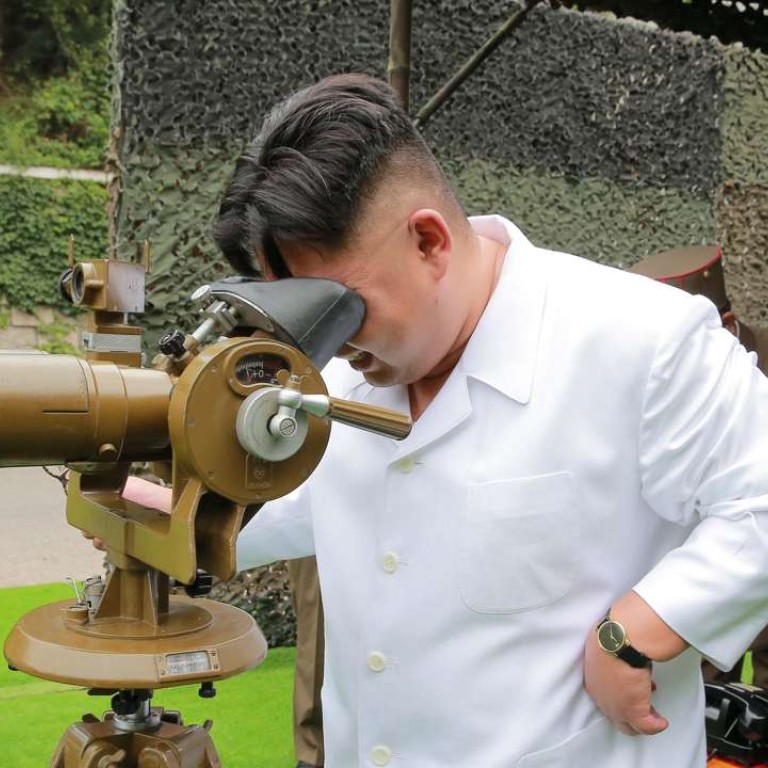
New | North Korea’s 5th nuclear test prompts US call for more sanctions
North Korea conducted its fifth and biggest nuclear test on Friday and said it had mastered the ability to mount a warhead on a ballistic missile, ratcheting up a threat that rivals and the United Nations have been powerless to contain.
The blast, on the 68th anniversary of North Korea’s founding, drew a fresh wave of global condemnation. The United States said it would work with partners to impose new sanctions, and called on China to use its influence as North Korea’s main ally to pressure Pyongyang to end its nuclear programme.
Under 32-year-old third-generation leader Kim Jong Un, North Korea has sped up development of its nuclear and missile programmes, despite UN. sanctions that were tightened in March and have further isolated the impoverished country.
The United Nations Security Council was set to discuss the latest test and whether the 15-member body should punish North Korea with more sanctions at a meeting on Friday, diplomats said. UN Secretary General Ban Ki-Moon urged the 15-member group to remain united and take action that would “urgently break this accelerating spiral of escalation.”
US President Barack Obama said after speaking by telephone with South Korean President Park Geun-hye and with Japanese Prime Minister Shinzo Abe that they had agreed to work with the Security Council and other powers to vigorously enforce existing measures against North Korea and to take “additional significant steps, including new sanctions.”

US Defense Secretary Ash Carter called for a redoubling of international pressure on North Korea and singled out the role he said China should play.
“It’s China’s responsibility,” he told a news conference during a visit to Norway. “China has and shares an important responsibility for this development and has an important responsibility to reverse it.”
China said it was resolutely opposed to the test and urged Pyongyang to stop taking any actions that would worsen the situation. It said it would lodge a protest with the North Korean embassy in Beijing.
Chinese Foreign Ministry spokeswoman Hua Chunying would not be drawn, however, on whether China would support tougher sanctions against its neighbour.

South Korea’s Park said Kim was showing “maniacal recklessness” in completely ignoring the world’s call to abandon his pursuit of nuclear weapons. Russia, the European Union, NATO, Germany and Britain also condemned the test.
US Secretary of State John Kerry said the United States remained open to “credible and authentic” talks on the denuclearization of the Korean peninsula, but added that North Korea had shown it would not be a credible negotiating partner. Six-party talks on the issue involving North and South Korea, the United States, Japan, Russia and China stalled in 2008.
North Korea, which labels the South and the United States as its main enemies, said its “scientists and technicians carried out a nuclear explosion test for the judgment of the power of a nuclear warhead,” according to its official KCNA news agency.
It said the test proved North Korea was capable of mounting a nuclear warhead on a medium-range ballistic missile, which it last tested on Monday when Obama and other world leaders were gathered in China for a G20 summit.
Pyongyang’s claims of being able to miniaturise a nuclear warhead have never been independently verified.
Its continued testing in defiance of sanctions presents a challenge to Obama in the final months of his presidency and could become a factor in the US presidential election in November, and a headache to be inherited by whoever wins.
“Sanctions have already been imposed on almost everything possible, so the policy is at an impasse,” said Tadashi Kimiya, a University of Tokyo professor specialising in Korean issues.
“In reality, the means by which the United States, South Korea and Japan can put pressure on North Korea have reached their limits,” he said.

